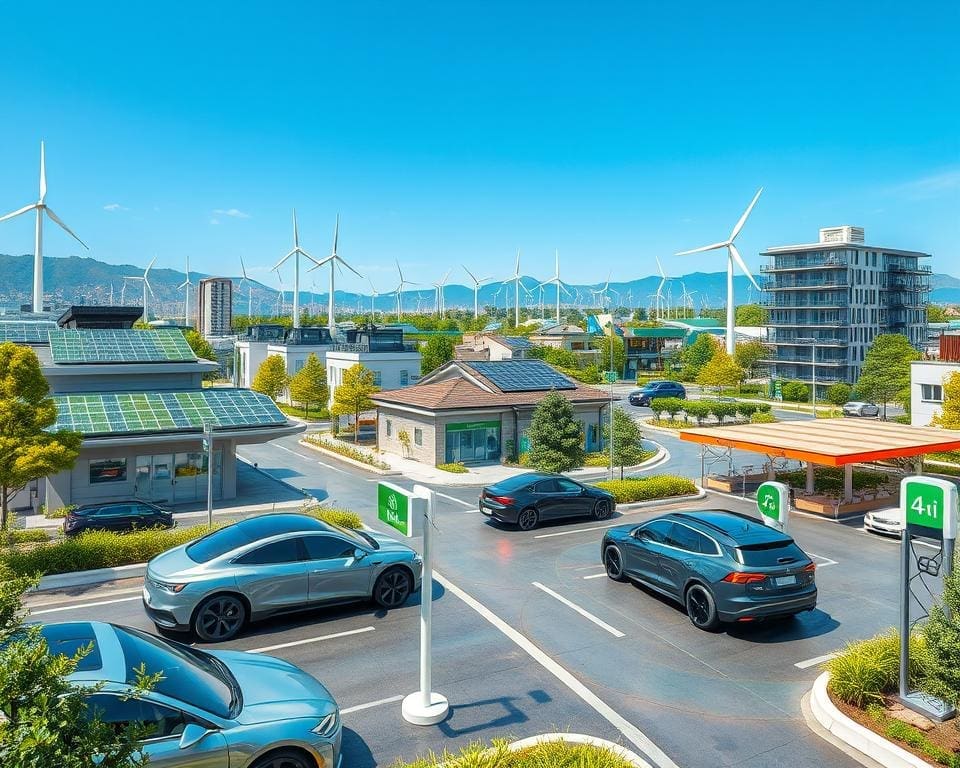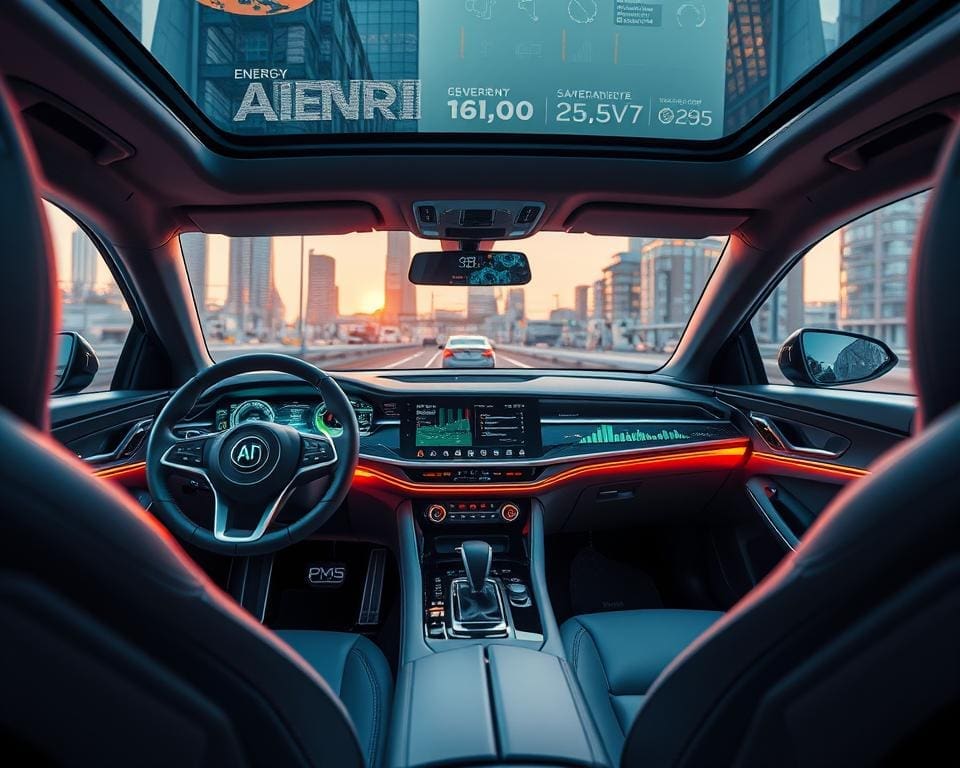The evolution of the automotive industry is entering an exciting phase, where cars of the future are being infused with advanced technology. Artificial intelligence plays a pivotal role in energy management systems, transforming how vehicles adapt to energy demands and usage. This innovative integration not only enhances vehicle performance but also promotes the adoption of sustainable energy in cars, contributing to a cleaner and greener environment. As we explore the potential of future car technology, it becomes clear that AI in energy management systems is not just a trend; it is the foundation for the smart vehicles of tomorrow.
The Role of AI in Energy Management Systems
Energy management systems (EMS) play a pivotal role in optimising vehicle performance by effectively managing energy use. These systems monitor and control energy consumption within cars, ensuring that resources are utilised efficiently for peak operational effectiveness. Understanding the fundamentals of EMS is essential for recognising how advancements in technology, particularly ai in energy management systems, can revolutionise automotive capabilities.
Understanding Energy Management Systems
At their core, energy management systems are designed to track and regulate the energy consumption of vehicles. Through continuous monitoring, these systems gather data on various energy-related metrics, enabling the identification of consumption patterns and potential areas for improvement. By effectively managing energy loads, EMS assists in maximising a vehicle’s range while minimising environmental impact.
How AI Enhances Efficiency
The integration of artificial intelligence into energy management systems significantly enhances efficiency in multiple ways. AI algorithms analyse large datasets to predict energy requirements and optimise energy use. This intelligent data analysis allows for real-time adjustments, ensuring that energy is directed towards functions that require it most urgently. Additionally, predictive modelling helps in anticipating future energy demands, further reducing waste and emissions. Through innovative solutions, ai in energy management systems achieves a remarkable improvement in vehicle performance and energy efficiency.

Cars of the Future: AI in Energy Management Systems
The integration of AI in energy management systems marks a significant leap towards a more sophisticated automotive landscape. As we move towards a future dominated by innovation, it becomes clear that future car technology heavily depends on advancements in AI. Leading manufacturers like Tesla and BMW exemplify this trend, showcasing how they enhance vehicle performance through intelligent energy optimisation.
These companies employ advanced algorithms to analyse real-time data, allowing for dynamic adjustment of energy consumption in response to driving conditions. Such innovations not only improve vehicle efficiency but also play a crucial role in the quest for sustainable energy in cars. By harnessing AI, these brands are paving the way for a new era where eco-friendly practices are seamlessly integrated into daily driving experiences.
As the automotive industry evolves, the transformative potential of AI in energy management systems becomes increasingly apparent. This technology promises to redefine how energy is utilised within vehicles, minimising environmental impact while enhancing the overall driver experience. With AI as a cornerstone, the future looks bright for the intersection of advanced technology and sustainability.
Smart Vehicle Technology and Sustainable Energy
The advent of smart vehicle technology marks a significant milestone in the quest for sustainable energy solutions. As the automotive industry embraces innovation, the integration of renewable energy sources becomes paramount. This transformation provides not only ecological benefits but also enhances the overall performance of vehicles.
Integrating Renewable Energy Sources
Modern vehicles are increasingly designed to harness renewable energy sources such as solar and wind power. This trend paves the way for cars that operate more sustainably, reducing reliance on fossil fuels. Notable initiatives have emerged where manufacturers incorporate solar panels into vehicle designs. This integration serves dual purposes, offering an auxiliary source of power while promoting environmental stewardship.
The Future of Energy-efficient Cars
The future looks bright for energy-efficient cars, with various manufacturers leading the charge toward greater sustainability. Brands like Nissan and Hyundai are at the forefront, developing technologies that maximise efficiency while minimising ecological impact. These advancements often embody a harmonious blend of performance and sustainability, reinforcing the notion that energy-efficient cars do not compromise on quality. As smart vehicle technology continues to evolve, we can expect a significant shift in how we approach transportation and energy usage.
Advanced Vehicle Energy Systems
The landscape of automotive technology is continually evolving, driven by the need for efficiency and sustainability. Advanced vehicle energy systems are at the forefront of this transformation, leveraging new technologies to enhance vehicle performance. These systems integrate various components, paving the way for an electrified future.
Development of New Technologies
Innovations in automotive design and engineering have led to the emergence of numerous new technologies within advanced vehicle energy systems. Smart sensors and data analytics are increasingly being utilised to enhance energy efficiency. These advancements promote better energy distribution and facilitate real-time energy monitoring, improving overall vehicle functionality.
Improvements in Battery Management
Central to the success of advanced vehicle energy systems is effective battery management. Companies like Panasonic and LG Chem are leading the charge in developing state-of-the-art battery management solutions. These innovations not only boost performance but also extend battery lifespan, allowing electric vehicles to operate more effectively and sustainably. Transitioning to these new technologies represents a significant step towards creating a greener automotive environment.
Automotive AI Development
The rapid evolution of automotive AI development is reshaping how vehicles optimise energy utilisation and enhance overall performance. As the industry continues to grow, innovative AI algorithms are increasingly pivotal in fine-tuning energy consumption, adapting in real-time to both driving conditions and driver habits.
AI Algorithms in Energy Optimization
AI algorithms play a crucial role in energy optimisation within modern vehicles. These sophisticated systems analyse vast amounts of data from multiple sources, enabling vehicles to adjust their energy use dynamically. By monitoring factors such as road conditions, engine performance, and driving behaviour, AI algorithms can significantly reduce energy expenditure, leading to enhanced vehicle performance. Automotive leaders like Ford have adopted these technologies, demonstrating how tailored algorithms contribute to smarter, more efficient vehicles.
The Impact on Vehicle Performance
The integration of automotive AI development has a profound impact on vehicle performance. Enhanced energy optimisation not only elevates efficiency but also improves overall driving quality. By leveraging insights from AI systems, manufacturers can better understand performance metrics, leading to innovations that resonate with consumer expectations. Research from institutions such as MIT underscores the importance of these advancements, highlighting the benefits of AI in creating vehicles that deliver superior energy efficiency and driving experience.
Smart Grid Integration
Smart grid integration marks a transformative shift in energy management, allowing for a dynamic balance between power supply and demand. This emerging strategy fosters a profound synergy between vehicles and grid systems, enabling a seamless exchange of energy and information.
Synergy between Vehicles and Grid Systems
The connection between electric vehicles and smart grid systems is monumental. Connected cars communicate with the power grid, optimising energy distribution and enhancing overall efficiency. This network creates opportunities for consumers to engage actively in energy management, empowering them to make informed decisions that benefit both their pockets and the environment.
The Role of Vehicle-to-Grid Technology
Vehicle-to-grid technology serves as a cornerstone of this integration. By allowing electric vehicles to return surplus energy to the grid, V2G technology plays a crucial role in demand management. Companies like Nissan have begun to demonstrate the immense potential of V2G capabilities, showcasing how electric vehicles can contribute to energy stability. This innovation not only supports the grid during peak demand but also encourages sustainable energy strategies, preparing society for a greener future.
Artificial Intelligence in Vehicles
As the automotive industry evolves, artificial intelligence in vehicles emerges as a crucial element, enhancing functionality and transforming the driving experience. The integration of AI technology serves not only to optimise performance but also to elevate user experience through innovative solutions.
Enhancing User Experience
AI applications in vehicles manifest in numerous ways, streamlining interactions between the driver and the vehicle. Intuitive interfaces facilitate seamless communication, while smart navigation systems adapt to user preferences, providing tailored route options. Features such as voice recognition and personalisation ensure that the driving experience becomes uniquely suited to individual tastes and requirements. This focus on enhancing user experience reflects a commitment to fostering a more engaging and enjoyable driving environment.
Driving Automation and Energy Efficiency
The role of AI extends into driving automation, where its impact on energy efficiency cannot be overlooked. By analysing real-time data and optimising driving patterns, artificial intelligence in vehicles contributes to smoother and more economical driving experiences. This optimisation enhances not only the convenience of automated driving but also positively affects energy consumption, supporting broader sustainability goals in the automotive sector. Brands like Waymo are at the forefront, demonstrating how AI can redefine transportation while prioritising both user satisfaction and energy efficacy.
The Future of Mobility and Energy Management
As we stand at the intersection of technological innovation and environmental stewardship, the future of mobility is poised for a remarkable transformation. With advancements in AI and smart technologies, energy management systems are evolving to become more efficient and sustainable. The integration of renewable energy sources into automotive practices not only reduces emissions but also ensures that our vehicles support a greener planet. The versatility of electric vehicles exemplifies a promising pathway towards this sustainable future.
However, realising this vision requires a collaborative effort among stakeholders. Manufacturers must invest in cutting-edge technologies, while policymakers need to create supportive frameworks that encourage the adoption of energy-efficient practices. Consumers, too, play a crucial role in driving demand for greener options. This collective commitment can propel the automotive industry towards a future where mobility is not only convenient but also environmentally responsible.
Ultimately, embracing the latest developments in energy management will redefine our transportation landscape, leading us to a cleaner, more efficient automotive future. The synergy of AI, innovative technologies, and sustainable energy sources will forge a new chapter in the future of mobility, inspiring us all to contribute to this pivotal change.









